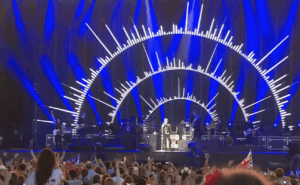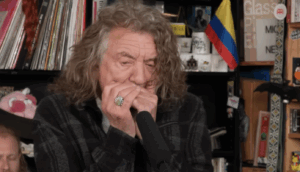Filmmaker Sues Over Alleged Unauthorized Use of Tom Petty Footage

via Tom Petty & The Heartbreakers / Youtube
Filmmaker Martyn Atkins has filed a lawsuit against Warner Music’s production branch, alleging the unauthorized use of his footage in the 2021 documentary Tom Petty, Somewhere You Feel Free: The Making of Wildflowers.
The documentary, directed by Mary Wharton, delves into the creation of Tom Petty’s 1994 solo album, featuring interviews with Heartbreakers members Mike Campbell and Benmont Tench. It also includes never-before-seen footage sourced from hours of 16mm archival film provided by Petty’s daughter, Adria.
Wharton explained to UCR in 2021 that the selection process for the footage was challenging due to poor organization and labeling. She said:
“A lot of it was dictated by what was good and what we could find sound for.”
Atkins’ Meetings with Tom Petty’s Team
In his lawsuit, Atkins claims that Warner Music used “a shocking 45 minutes” of his footage without permission or compensation. The footage, shot by Atkins in the ’90s, comprises half of the 90-minute documentary. Atkins, who often photographed Petty and served as his art director during the making of Wildflowers, asserts that he had planned to make a documentary about Petty and had shared his footage’s location with Adria and estate representatives under the impression he would direct the film.
According to the lawsuit, Atkins was misled into believing he would be the film’s director, only to be excluded from the project entirely. The suit states:
“Atkins had been conned into believing he would produce and direct the film so that Atkins would reveal the location of his footage to defendants.”
It further claims that the producers falsely presented the footage as “magically and unexpectedly discovered” to enhance the film’s marketing. Press releases from 2021 described the footage as “newly discovered,” which Atkins alleges is part of a systematic deception.
After his initial meeting with the Petty team, Atkins says he was completely cut out of the production process. The lawsuit claims:
“He was then cut out completely — in every imaginable respect.
“He was not even told as a courtesy that his works would be misappropriated and featured, let alone asked his consent.”
Atkins’ lawsuit seeks to address what he views as the unauthorized and exploitative use of his work, spotlighting the ongoing disputes over creative rights and the handling of archival material in the music industry.













